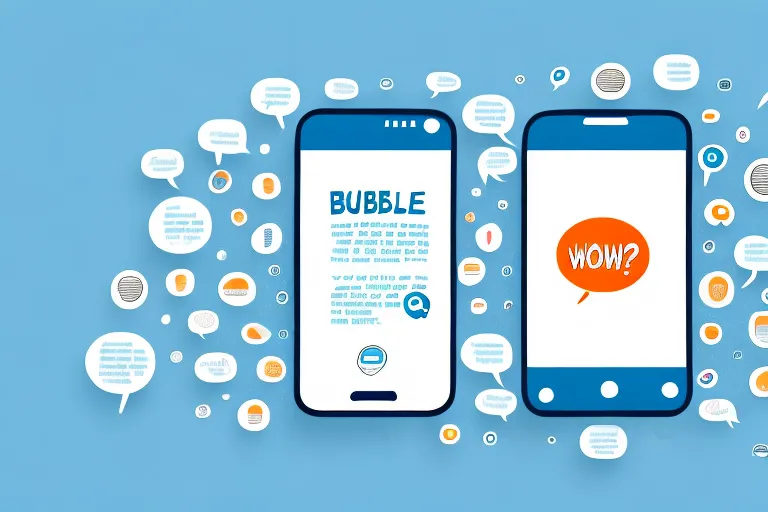In today's digital age, where smartphones are ubiquitous, text message marketing has emerged as a powerful tool for small businesses to connect with their customers. With high engagement rates and immediate reach, this marketing strategy has proven to be an effective way to promote products and services, boost sales, and increase customer retention. In this article, we will explore the basics of text message marketing, delve into its benefits for small businesses, discuss implementation strategies, showcase case studies of successful campaigns, and glimpse into the future of this dynamic marketing tool.
Understanding the Basics of Text Message Marketing
Before we delve into the benefits and implementation of text message marketing, let's first define what it is. Text message marketing, also known as SMS marketing, involves sending promotional messages or announcements directly to customers' mobile phones via text messages. These messages can include discounts, special offers, event invitations, and more.
In today's digital age, where almost everyone has a mobile phone, text message marketing has become an increasingly popular and effective marketing strategy. It allows businesses to connect with their customers in a more personal and immediate way, leveraging the power of mobile technology.
What is Text Message Marketing?
Text message marketing is a permission-based marketing approach that requires customers to opt-in to receive promotional messages. This opt-in can be obtained through a variety of methods, such as subscribing to a newsletter, completing a purchase, or simply texting a keyword to a designated number. Once customers have opted in, businesses can then send targeted messages to their subscriber list.
The process of opting in is crucial in text message marketing as it ensures that customers have given their consent to receive promotional messages. This not only helps businesses comply with legal regulations but also ensures that the messages reach an interested and engaged audience.
Why is it Relevant for Small Businesses?
Text message marketing is particularly relevant for small businesses for several reasons. Firstly, it provides a cost-effective way to reach a wide audience. Unlike traditional marketing channels such as print media or television ads, text message marketing allows businesses to communicate directly with their customers without incurring expensive advertising costs.
For small businesses with limited marketing budgets, this can be a game-changer. It allows them to compete with larger companies and reach their target audience without breaking the bank. By investing in text message marketing, small businesses can maximize their marketing efforts and achieve a higher return on investment.
Secondly, text message marketing has incredibly high open and engagement rates. According to industry reports, the average open rate for SMS messages is a staggering 98%, compared to only 20% for email marketing. Moreover, the majority of text messages are read within minutes of being received, ensuring that your message is seen promptly.
This high engagement rate is due to the nature of text messages. Unlike emails or social media posts, which can easily get lost in a crowded inbox or newsfeed, text messages are more likely to be noticed and opened. This makes text message marketing an effective way to grab your customers' attention and deliver your message directly into their hands.
Lastly, text message marketing can provide a competitive advantage for small businesses in a crowded market. Implementing this strategy can help you stand out from the competition, increase brand awareness, and build customer loyalty.
By sending targeted and personalized messages to your customers, you can create a deeper connection with them. Whether it's offering exclusive discounts, inviting them to VIP events, or simply keeping them informed about your latest products or services, text message marketing allows you to stay top-of-mind and build a loyal customer base.
In conclusion, text message marketing is a powerful tool for small businesses looking to enhance their marketing efforts. It offers a cost-effective way to reach a wide audience, boasts high open and engagement rates, and helps businesses stand out in a competitive market. By leveraging the benefits of text message marketing, small businesses can drive customer engagement, increase sales, and ultimately, achieve business growth.
The Power of Text Message Marketing
Immediate Reach and Response
One of the key advantages of text message marketing is its immediate reach and response. When you send a text message to your subscriber list, it lands directly in their hands and is often read within minutes. This allows you to communicate time-sensitive information, such as flash sales, limited-time offers, or event reminders, in a timely manner.
Moreover, text messages have high response rates. Studies show that text messages have an average response time of just 90 seconds, compared to 90 minutes for emails. This instant response allows you to engage with your customers quickly and drive immediate action.
High Engagement Rates
Engagement is crucial for any successful marketing campaign, and text message marketing excels in this area. With open rates as high as 98%, you can be confident that your messages will be seen by the majority of your subscribers.
Furthermore, text messages have high click-through rates (CTR). Research indicates that SMS-based campaigns have an average CTR of 19%, significantly higher than the average CTR for email campaigns. This means that your customers are more likely to click on a link or redeem a coupon when it is delivered via text message.
Cost-Effective Marketing Strategy
For small businesses with tight marketing budgets, cost-effectiveness is paramount. Text message marketing offers a highly cost-effective way to reach your target audience. Compared to traditional advertising methods, such as print or TV ads, text message marketing is much more affordable, making it accessible to businesses with limited resources.
Additionally, text message marketing allows you to target specific segments of your subscriber list, ensuring that your messages reach the most relevant audience. By sending personalized and targeted messages, you maximize the effectiveness of your campaigns and minimize wasted marketing efforts.
Implementing Text Message Marketing in Your Small Business
Building a Mobile Subscriber List
Before you can start utilizing text message marketing, you need to build a mobile subscriber list. There are several effective methods to grow your list. One common approach is to offer incentives for customers to opt-in. This can include exclusive discounts, early access to sales, or free content. By providing value to your customers, you can encourage them to willingly share their mobile numbers.
It is important to ensure that you have obtained proper consent from your subscribers and have complied with all applicable data privacy laws. Clearly communicate how often you will be sending messages and provide a straightforward opt-out mechanism to maintain trust and compliance.
Crafting Effective Marketing Messages
The success of your text message marketing campaigns relies heavily on the quality of your messages. To craft effective marketing messages, keep them concise, relevant, and action-oriented. Customers appreciate messages that get straight to the point and offer clear benefits.
Moreover, make use of personalization to create a sense of connection with your customers. Address them by name and tailor the content of the message to their preferences whenever possible. This personal touch can significantly increase engagement and response rates.
Compliance with Text Message Marketing Laws
Compliance with text message marketing laws is vital to protect both your business and your customers' privacy. Familiarize yourself with the laws and regulations governing text message marketing, such as the Telephone Consumer Protection Act (TCPA) in the United States or the General Data Protection Regulation (GDPR) in the European Union.
Ensure that you have obtained proper consent from your subscribers, provided clear opt-in and opt-out mechanisms, and respected their preferences. Additionally, keep thorough records of consent and be prepared to promptly address any customer requests or concerns regarding their data.
Case Studies of Successful Text Message Marketing
Local Restaurant Increases Customer Retention
A local restaurant implemented a text message marketing campaign to boost customer retention. By offering exclusive discounts and personalized offers to their subscribers, they incentivized customers to continue dining at their establishment. The personalized approach and immediate reach of text messages resulted in increased customer loyalty and repeat business, ultimately contributing to their bottom line.
Retail Store Boosts Sales with SMS Promotions
A retail store incorporated text message marketing into their promotional strategy and experienced a significant boost in sales. By sending SMS promotions to their subscriber list, they increased foot traffic to their store and encouraged customers to make purchases. The high engagement rates and immediate response from text messages proved to be a game-changer, allowing them to effectively drive sales and reach their revenue goals.
Future of Text Message Marketing
Integration with Other Digital Marketing Strategies
As technology continues to evolve, the future of text message marketing lies in its integration with other digital marketing strategies. Businesses can leverage the power of SMS marketing by combining it with social media advertising, email campaigns, or mobile apps. By integrating these channels, businesses can create cohesive and personalized marketing experiences that maximize customer engagement and drive results.
Advances in Personalization and Automation
Advancements in personalization and automation will play a key role in the future of text message marketing. Businesses will have access to innovative tools and technologies that enable them to deliver highly personalized messages at scale. By leveraging customer data, artificial intelligence, and machine learning algorithms, businesses can automate message delivery and tailor content based on individual customer preferences, maximizing the effectiveness of their campaigns and enhancing the customer experience.
In conclusion, text message marketing offers small businesses a powerful and cost-effective way to connect with their customers. With its immediate reach, high engagement rates, and ability to drive action, it has become an essential tool in a marketer's arsenal. By understanding the basics, implementing effective strategies, and staying abreast of industry developments, small businesses can leverage text message marketing to achieve their marketing goals and thrive in today's digital landscape.

